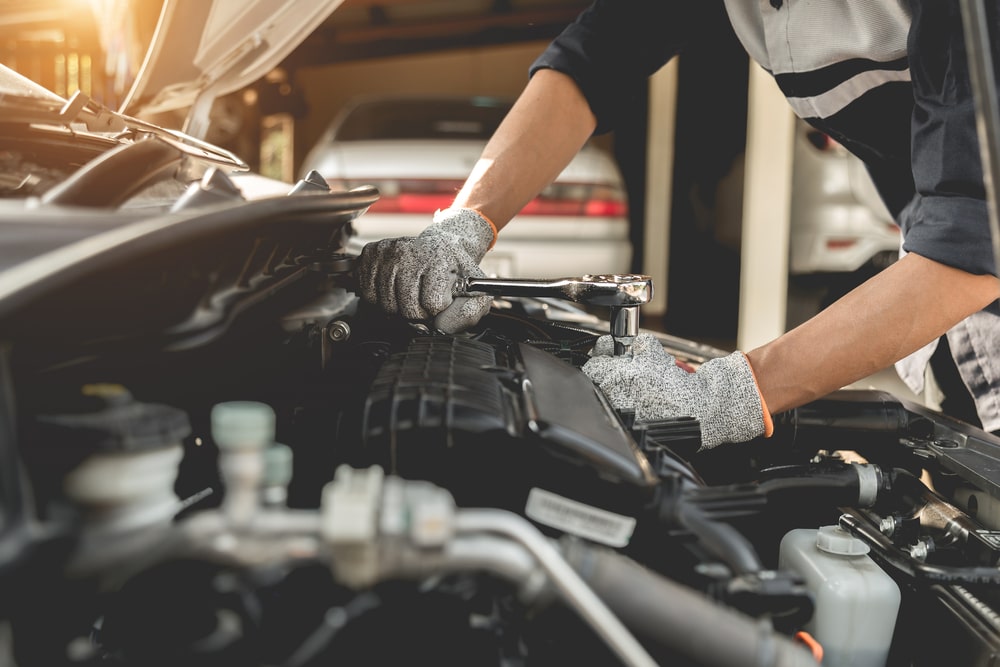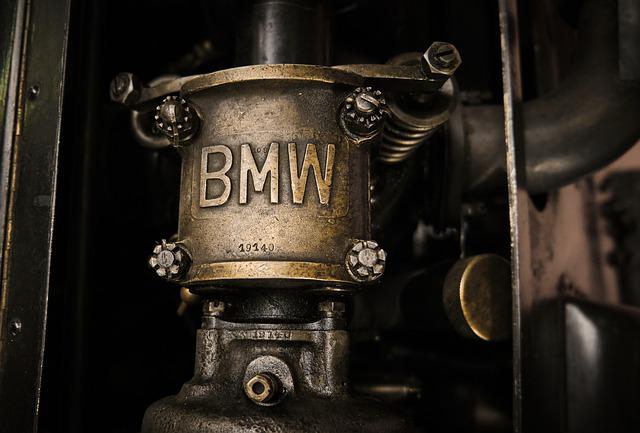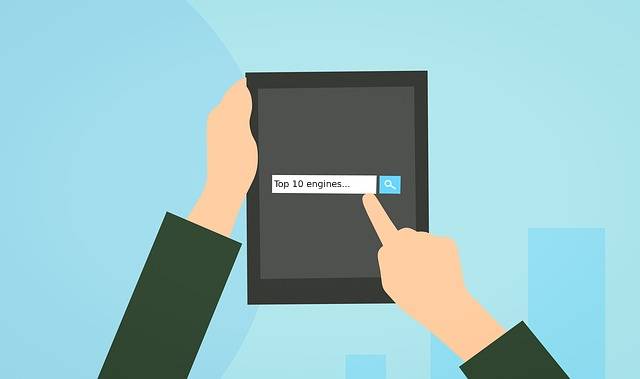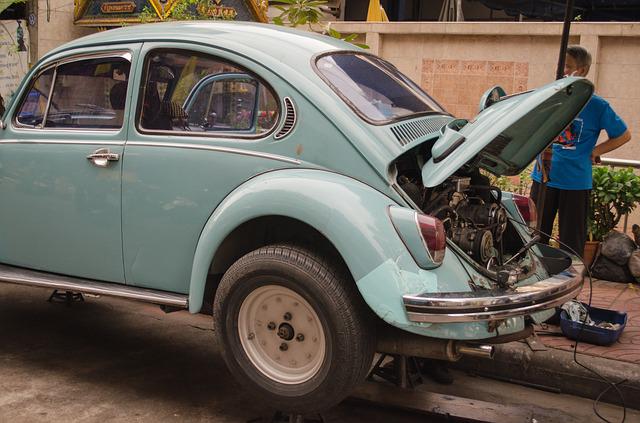Boost Your Knowledge: Top 15 Car Maintenance Myths Exposed.
Find Used Engines and Transmissions for a Great Price! Live Assistant For Used Engines Call 1800-518-9776

There are ridiculous car maintenance myths going around. They say to maintain your car, you need to change your oil every 3,000 miles. Others say a dirty car works better. Oh, and don’t get us started on the ones that say that - dirty cars burn less fuel than clean cars!
Sounds silly. Yet people believe these myths and end up doing the exact opposite of what their car needs. Just imagine your car working for a long time. It still has high quality, because you followed the right steps to sustain it.
You can save your car from irreparable damages by separating facts from myths. Don’t believe all the hyped myths about car maintenance and learn how to take care of it the right way.
Let’s bust some of those myths floating around to save your car and money:
Importance of bursting car maintenance myths:
-
Busting car maintenance myths are important for the longevity of your car. Your car won’t work for a long time if you’re still using outdated technologies to maintain it.
-
Your car has a huge impact on your life. If you’re doing more harm to it than good, it will cost your pocket immensely.
-
You’ll get a better driving experience when your car is maintained the right way. Having a weekly to monthly car check up is a great choice.
Now that we have that out of the way, let’s talk about the 15-car maintenance myths going around!
TOP 15 car maintenance myths
1. A good car needs only expensive oil
-
Just because it’s an expensive or premium quality oil, it won’t magically make your car perform better. Picking the right oil for your engine is what will make it better.
-
Don’t burn a hole in your pocket getting the next best and new premium liquids hoping they will be good for your car. Mid-range quality and rate oils can also give good performance and lubrication depending on the type of engine you have.
-
You can go with the oil your manufacturer recommends. But, it’s also important to remember that synthetic oil, even if it helps you drive faster - doesn’t mean better performance!
2. Change engine oil every 3,000 miles
-
You may have heard this one. This is a standard rule that people follow and even find oil change stickers on their cars. Simply following this rule wastes time and money.
-
For vehicle maintenance, changing engine oil every 3,000 miles is not a magical solution. Synthetic oil is available in the market today and makes a car work longer without needing an oil change after this limit.
-
Change your engine oil according to your engine requirements. Following your car’s manual will give you specific instructions on what your engine needs.
3. Tire pressure comes with the tires
-
You may have found some PSI digits imprinted on your tires. People think that those digits are the tire pressure they need to maintain for their tires. But, this is far from the truth.
-
Those numbers you see on your car tires tell you the maximum amount of pressure your tires can hold. Exceeding that number puts your tires at risk of busting. It’s better to check your doorjamb and understand the tire pressures accurately.
-
Besides, you can also have a car check up with your manufacturer for more information on what tire pressure is needed.
4. Getting tires rotated after an oil change is important
-
Not just after an oil change, people also get their tires rotated every 5,000-10,000 miles. This is because they believe it is important to keep all 4 tires equally balanced after driving - so that the tire pressure is equally distributed.
-
This is done to prevent your tires from wearing out more quickly. To prevent replacing all 4 tires at the same time, this method is followed. But, it isn’t always important to get your tires rotated.
-
If you happen to have equal alignment on all 4 tires, they can stay inflated and perform better for a longer time. And, when you keep your tires inflated correctly, they increase fuel efficiency and drivability.
5. Nitrogen & Tyre protectant spray is important
-
Some people think it’s better to use nitrogen instead of air in their tires. But, this can also wear out your tires quickly. When your tires aren’t inflated properly, neither air nor nitrogen helps them work properly.
-
On the other hand, people apply tire protectant spray to preserve their tires. But, this is not needed because your tire's body comes with chemicals that protect it. So, the spray just adds extra shine and increases the aesthetic appeal of your tires.
-
Don’t mix nitrogen with air in your tires as it can damage performance. Fill them adequately as recommended by your manufacturer. And, don’t get tire sprays if you think they’ll preserve your tires.
6. Coolant or brake fluid doesn’t need to change often in cars
-
Modern cars are still cars! If you’re using them regularly, you must change your coolant and brake liquid timely. And, when you fail to do that, your fluid starts having air bubbles. This can stop brake control and even cause accidents while driving.
-
For some reason, people think that modern cars are well-equipped to handle no fluid changes for a long time. But, fluids get contaminated just the same in all cars and need to be changed frequently.
-
As advised by pro manufacturers, change your coolant at least every 30-60,000 miles. It’s good to change it before the anti-freeze wears out. And, your brake fluid should change every 45,000 miles. This helps you maintain your braking system.
7. New cars don’t need to be warmed up before driving
-
Cold starting your car will lead to engine shutdown. It causes future issues which cause you to go for vehicle repair. And, can cause permanent damage to your car’s transmission system too.
-
Even though new cars are fitted with advanced technologies - such as fuel injections and throttles, it’s always beneficial to warm up your engine. Wait for it to be at an optimal temperature, and you’ll benefit your car in the long run.
-
You may argue modern engines warm up within seconds and it’s okay to just drive off without warming them up. The truth is that cold starting your car, again and again, will cease it from functioning completely one day. Save your engine and wait for it to warm up.
8. Any repair work on your car is better done by a mechanic
-
It costs a lot of extra cash whenever you go for car repairs. But, believe it or not - sometimes your car just needs some minor fixes.
-
When you learn to identify the problem early on and keep regularly doing vehicle maintenance - it saves you from a lot of car issues. Performing a car check up now and then - is a good practice to follow.
-
The tune up cost of your car can be a lot too. That being said, if you’re not able to identify the problem or fix it on your own - going to a good mechanic or your car manufacturer is recommended.
9. If you don’t drive your car much, changing the engine oil isn’t needed
-
If your engine oil stays for a long time, it will get contaminated. That’s why it's important to replace it timely, even if you don’t drive much. This helps your car engine stay healthy and clean.
-
If you notice bad smells coming from your engine, it can be a result of the engine oil going bad. In worse cases, it causes sludge in your engine and even becomes solid. Also, polluted oil can reach parts of your engine that are devastatingly hard to clean.
-
Don’t let the oil sit and rot in your engine for months on end. Change it at least every 10,000 miles at least once a year if you don’t use your car too often.
10. Save money by buying lower-end engine oil
-
Your car’s engine oil should have good quality. But, it’s useless if it doesn’t match the requirements of your engine. If your car would run better on synthetic oil or blends, it’s a more economical option to pick that.
-
On the other hand, if conventional oil gets the job done for your engine, that shouldn’t be a bother either. What exactly do you want from your engine oil? If you want better gas mileage, go for high-mileage oils for your car.
-
So, when you’re picking engine oil -it’s important to understand what would make your car perform better and smoother. Don’t be dependent on the price and make your engine suffer. This only causes excessive repairs in the future.
11. Using detergent or dish soap will clean your car
-
Cleaning your car is a very important step to keeping it maintained. Using regular detergent or dish soap will spoil the body of your car. The paint starts wearing out and the chemicals are not compatible with traditional car cleaning.
-
Dish soap makes it harder to clean and makes the car's surface too slippery. Pick car-specific shampoos and soaps - that have good PH Balance. This will clean your car faster and keep it protected too.
12. You can’t get your car maintained anywhere outside the car dealership
-
It’s alright to get your car maintenance or repair done from a good, reputable place. But in case, there happens to be serious damage to your car’s original parts or extensive modifications, it can result in a void warranty.
-
Be careful with your car repairs. If you get parts modified and they are not able to be serviced or repaired by your car manufacturer - it’ll cost you more than it’s worth.
-
If you don’t want your car warranty voided, don’t change too much in the electrical system of your car or get wire cuts.
13. Flush transmission fluid every 50,000 miles
-
Your transmission flush depends on the type of transmission you have. Following the 50,000 miles rule blindly is not useful for your car. In some cases, a transmission flush is not even required.
-
Don’t quickly jump into flushing your transmission fluids. If the problem is with the transmission clutches, get them fixed. If your transmission is slipping a lot, you can mix old transmission fluid with parts of new fluid - so that the liquid has some grit to it.
-
Only go for a transmission flush if your car already has good fluid. You don’t want clogged car valves, because of your old transmission fluids. For older vehicles, it’s better to not go for a transmission flush.
14. The grade of fuel doesn’t matter
-
The grade of fuel matters a lot for your engine. It might be normal to go for the cheapest fuel option for your engine, but this is a bad choice. Picking the wrong fuel for your engine can damage it and cost you a lot of money in the future.
-
It’s important to understand the octane rating required by your engine. Check the user manual of your car to see which grade fuel will work best for it.
-
Your car manufacturer may also state the fuel octane numbers clearly. In this case, make sure you only pick that fuel number for your car.
15. A heavy car is a safe car
-
This myth comes from the belief that a heavier car will hold better in the event of a crash. Alternatively, people also assume that driving a heavier car is better for drivability, because its stability increases.
-
The truth is that a car’s safety depends upon the way it is built, rather than its weight. If the body is highly resistant to wear and tear, it can reduce car damage in the event of a car crash.
-
On the other hand, drivability in a car depends on its torque level. The higher it is, the easier it gets to shift gears and, carry heavy loads for your car.
Conclusion
The myths going around about car maintenance are useless! Figure out exactly what your car needs and maintain it accordingly. Your car manual is a useful tool that instructs you on what to do for your exact car model - so follow that.
If other issues arise, you can always go to your car manufacturer.
If your car needs repairs, check out used engines and used transmission systems today. Select from the largest inventory in the U.S.A. - Premium quality and 100% ASE Certified! Contact us now for more info.
FAQ
Frequently Asked Questions.
1. Does a clean car drive better?
2. Is a dirty car more fuel efficient?
3. What is the most important maintenance on a car?
4. How long can I drive my car without maintenance?
5. What should be included in routine vehicle maintenance?
6. How much does a full car tune up cost?
related
You May Also Like

Which BMW Has the Most Horsepower?
A car is useless if it doesn’t have good horsepower. Just imagine driving your car with sluggish acceleration and it drags on the road whenever you take it for a spin.
Read Article
10 Best Engines Made So Far By Top Engine Manufacturers
Over the years, the car industry has seen major changes. Car engines have become smarter and it looks like every new engine that rolls out is better than the other.
Read Article
How to Make Your Car Last Forever?
Isn’t it lovely when a new car works the way you want? The gears shift smoothly and the wheels roll without dragging against the road. But as your car gets older, you’ll notice that it doesn’t drive smoothly, has lower fuel mileage, and overheats easily.
Read Article